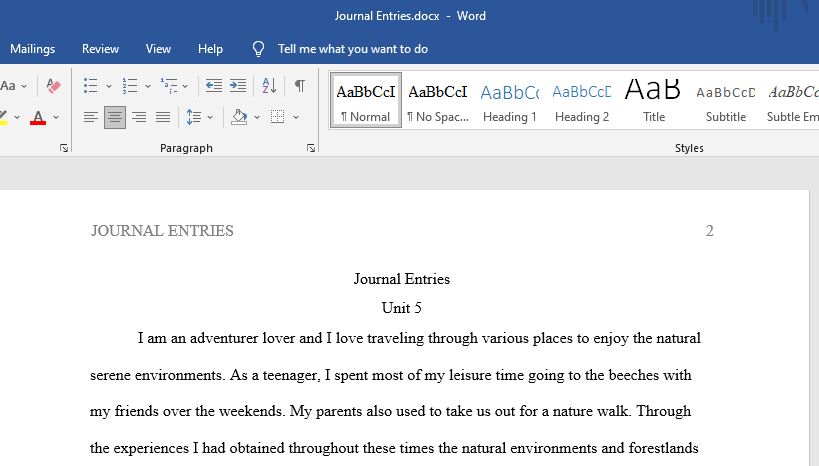Watch the following video segment titled “Humans: Destroyers of Ecosystems”
New Atlantis (Producer). (2002). Humans: Destroyers of ecosystems (Segment 7 of 13) [Video]. https://libraryresources.columbiasouthern.edu/logi…
Click here for a transcript of this video segment. How much time did you spend outside as a child/teenager? Describe your experiences with forestland or other natural environments. Are those areas still in their natural state? Even if you have not spent much time outdoors, have you seen natural areas become fragmented due to land-use change (housing developments, industry, clear-cutting, etc.)? Consider the benefits and services provided by natural lands (clean water, air, biodiversity, etc.). How does the loss of forests and other natural lands affect you personally? Give specific examples.
Your journal entry must be at least 200 words. No references or citations are necessary.
-
Unit 6-Instructions
Watch the following video: https://www.nasa.gov/mp4/259924main_DeadzoneWebShort.mp4Click here for a copy of the transcript.In your own words, summarize how a dead zone forms along populated coasts. What are the major sources of the excess nutrients? Consider your community. What are some of the major sources of nutrient runoff that you see on a regular basis? Do you contribute to this problem? Discuss at least two ways in which you, personally, can reduce your impact on ocean life.Your journal entry must be at least 200 words. No references or citations are necessary.SUBMIT UNIT VI JOURNAL »
Requirements: 1 Page | .doc file
Answer preview:

word limit:733
